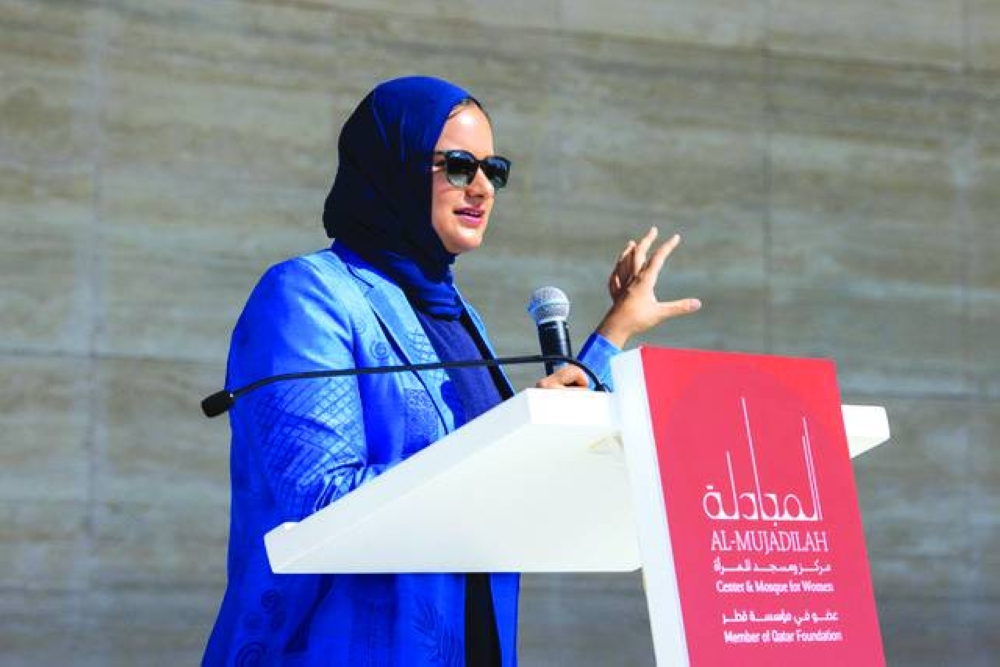The Al-Mujadilah Centre and Mosque for Women opened its doors in January this year with an ambitious vision: to be a brave and dynamic place for Muslim women to learn, connect, and engage in public debate.
Now, six months later, thanks to the leadership of executive director Dr Sohaira Siddiqui, the centre is already achieving its goals.
Founded by Her Highness Sheikha Moza bint Nasser, Chairperson of Qatar Foundation, the centre aims to strengthen Islamic identity among Muslim women of all ages and backgrounds and to enrich contemporary Islamic discourse.
Integral to executing the project is Dr Siddiqui, an associate professor of Islamic Studies and Theology at Georgetown University in Qatar (GU-Q).
The centre honours the rich history of Muslim women as leaders and thinkers, focusing on research projects in Islamic texts, law, and ethics; Muslim women’s lives; and Muslim women’s health and well-being.
“When I was first approached about Al-Mujadilah, I saw it as an exceptional opportunity to create a unique space for learning and discussion,” says Dr Siddiqui.
The role allowed her to bridge her academic life and her deep understanding of the profound gap that remains in the study of Muslim women’s lives, past and present.
Dr Siddiqui’s work at Al-Mujadilah is deeply connected to her academic pursuits.
Dr Siddiqui has published several books on the history of Islamic law.
Her forthcoming book, *Contesting Colonial Power: Refashioning Islamic Law in British India, explores how British colonial rule could not wholly erase Islamic law.
Starting from 1757, the book traces how Islamic law adapted and persisted within the common-law framework when the British East India Company attempted to replace Mughal authority and reshape the legal system to suit their administrative needs.
At Al-Mujadilah, Dr Siddiqui's extensive research experience shapes the centre’s initiatives.
The centre’s research and programming theme for the coming year, “Muslim Women in Public Life: Possibilities and Challenges”, explores how Muslim women have engaged in and contributed to society and public life from the inception of Islam to the present day.
The centre will explore the various dimensions of women’s public involvement – as scholars, economic actors, patrons, or political agents – and how this has been shaped by cultural, religious, and political factors in diverse historical and contemporary contexts.

Dr Sohaira Siddiqui
